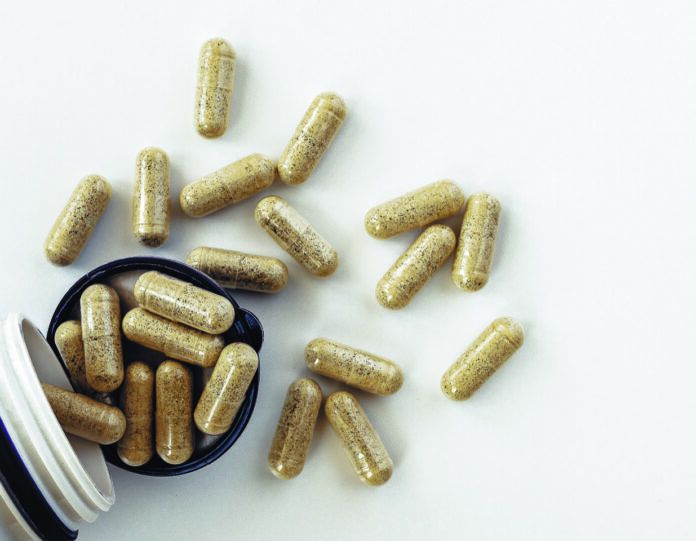The National Institutes of Health estimates that 60‒70 million Americans struggle with digestive diseases. As such, it is understandable that the enzyme supplements market is projected to reach over $1 billion by 2026. EN reviews this supplement type.
Background. The body produces and secretes digestive enzymes throughout the gastrointestinal system. Their primary role is to aid the digestion of food. Digestion starts in the mouth with the salivary enzymes (amylase). Digestive enzymes are also in the pancreas, stomach, and small intestines that break down carbohydrates, fats, and proteins. While there are many digestive enzymes, the pancreas is responsible for producing the most important enzymes: amylase (breaks down carbohydrates), lipase (breaks down fats), and protease (breaks down proteins). The small intestine also produces enzymes lactase and sucrase to break down lactose and sucrose. Many foods, primarily fruits and fermented foods, contain digestive enzymes including pineapple (bromelain) and papaya (papain).
Evidence. So, if the body produces digestive enzymes and they are in foods, why do people use supplements? Generally, most healthy individuals don’t need additional enzymes to adequately digest and absorb foods. However, people with enzyme insufficiency often require exogenous digestive enzymes since they don’t release adequate amounts. These typically include exocrine pancreatic sufficiency, lactose intolerance (cannot digest milk sugar), or congenital sucrase-isomaltase deficiency (cannot digest certain sugars). Despite the large market and popularity of digestive enzyme supplements for a wide variety of conditions (IBS, gluten intolerance) or common digestive complaints, there’s limited and mixed data on the effects of over-the-counter (OTC) digestive enzymes for healthy adults. However, a small clinical trial reported that consumption of prescription enzymes given to healthy adults before and after a high-fat meal reported significantly less gas, bloating, and fullness versus controls.
Safety and Side Effects. The only FDA-regulated enzyme replacement therapy pancreatic insufficiency and it is available by prescription. However, the risks of taking other OTC supplemental digestive enzymes are low for the general population. The most reported side effects are mild digestive complaints. Individuals on blood thinners should be cautious of bromelain since it could increase risk of bleeding. In high doses, papain may cause as esophageal perforation. Please connect with your doctor before starting a new supplement.





















